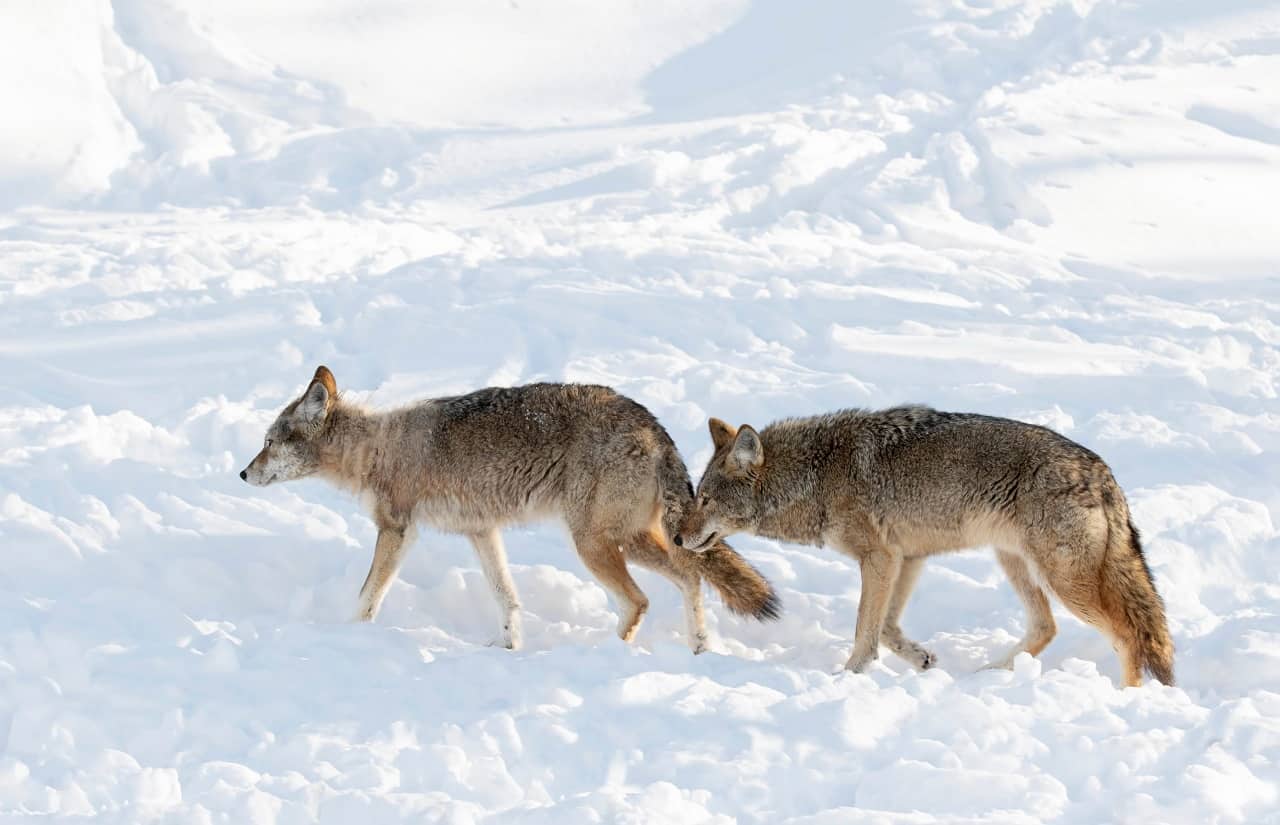Coyote incidents down dramatically in Mississauga as residents seem to get the message
Published January 13, 2023 at 4:09 pm

The number of coyote incidents in Mississauga is on the sharp decline the last two years, leading City officials to believe residents are finally getting the message to not feed the wild animals.
In a news release today (Jan. 13), City of Mississauga Animal Services staff said that in 2021 and 2022 they have seen a decline in coyote incidents by about 81 per cent, with no reported coyote incidents involving humans.
An incident, officials explain, is any reported physical interaction involving a coyote, a pet or a human.
Still, Mississauga residents must remain vigilant in efforts to keep wildlife in its own habitat and away from city streets and neighbourhoods.
“While coyote incidents are down, we can’t always predict what coyote behaviour will be in a given year. We are thankful that residents are following and listening to the guidance and safety advice we have been providing,” said Jay Smith, manager of Mississauga Animal Services. “In most cases, coyotes pose little risk to humans and pets. However, encounters do happen, which is why education and awareness is so important. We know the best approach to limiting and reducing incidents between people, pets and coyotes is to continue proactively educating, creating awareness and providing safety information to the community.”
In the past two years, most notably in the last year or so, Mississauga officials have aggressively pushed their message reminding residents to not feed coyotes, foxes or other wildlife–especially during winter.
Most recently, the City took to social media this past November to deliver the warning once again.
“As days get colder and we approach winter, coyotes and foxes will be more active as their natural prey is scarce,” Mississauga officials posted on Twitter Nov. 4. “However, please do not feed them as this disrupts their natural abilities to search for food and can lead to bold behaviour.”
In a recent communication to residents on the subject, officials posted a video to social media showing people what to do if they should encounter a coyote while out and about in their neighbourhoods and parks.
In ongoing efforts to get people to stop feeding coyotes and other wildlife across the city, Mississauga officials have also delivered that message by repeatedly warning residents of the potentially hefty fines (up to $300) for such activity.
They’ve also posted more signs–and newer signs with more clear messaging–throughout parks and neighbourhoods in an attempt to reach more people.
One Mississauga councillor even suggested last year that the City use graphic photos of dying coyotes on signs to get the message across to residents.
Mississauga Animal Services officials say they proactively address coyote concerns with the community by:
- recording, mapping and active monitoring of reported sighting/incident information
- responding to coyote sightings in public areas involving injury, illness or bold behaviour
- providing educational mailouts and outreach to neighbourhoods, schools and businesses
- installing educational park signs, temporary boulevard signage and using electronic billboards
- conducting patrols to monitor for bold coyote behaviour, intentional wildlife feeding and off-leash dogs
- deterring coyote activity using aversion conditioning (hazing)
- investigating, educating and issuing fines for wildlife feeding
- hosting educational seminars for schools and various groups in the community
- providing education and safety messaging on the City’s social media channels
- identifying property standards concerns and forwarding them to the appropriate department for investigation
- partnering with councillors on developing messaging, response and implementation of coyote strategy
“While seeing a coyote can be intimidating, the risk of encountering a coyote remains low as many coyotes try to avoid humans,” said Smith. “At the same time, coyote sightings are more prominent in the winter as they have less coverage and their fur contrasts against the snow. Winter (December – March) is also coyote mating season, so they may be seen in more populated areas looking for a mate. If you observe or encounter a coyote in Mississauga, please report sightings to Animal Services.”
To report wildlife feedings or an aggressive, sick or injured coyote, call 905-896-5858.
INsauga's Editorial Standards and Policies








